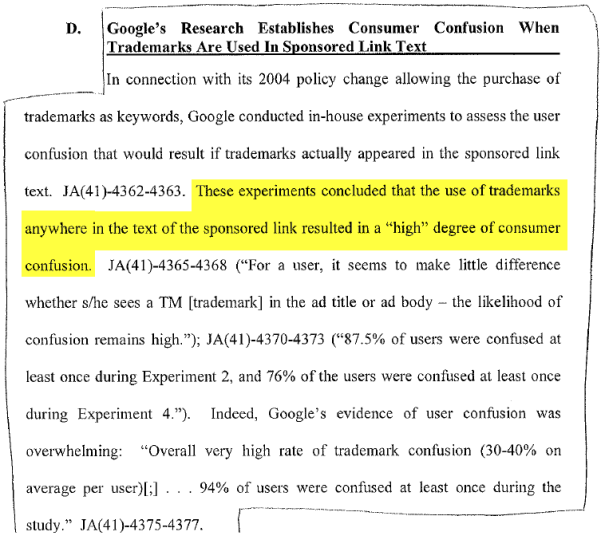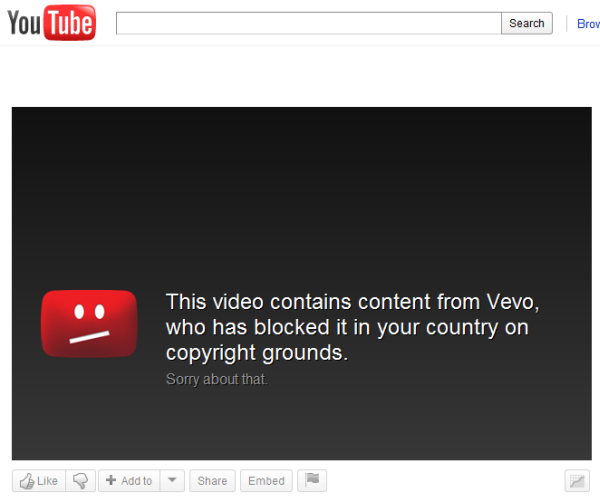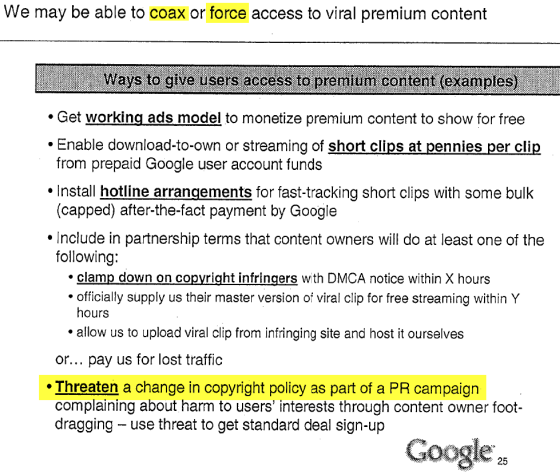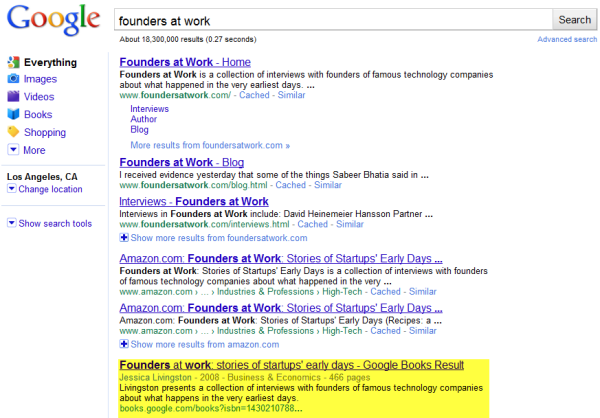Google's Missing Disclosure
Netflix's Risky Position
One of the fundamental keys to monetizing third party content is finding a way to do it while keeping your earnings data abstract. A huge problem that hits pure plays like Netflix is that as soon as companies see the profits the cost structures change.
- Comcast is looking to get some funds from Level 3 (for distribution of Neflix content), and
- Partners who license video content to Netflix want a bigger piece of the action as well: "Now many of the companies that make the shows and movies that Netflix delivers to mailboxes, computer screens and televisions — companies whose stocks have not enjoyed the same frothy rise, and whose chief executives have not won the same accolades — are pushing back, arguing that the company is overhyped, and vowing to charge much more to license their content."
Making big money on someone else's content makes the content owner look stupid. As soon as you let big media know you are making money on their content they get pissed and feel they rightfully earned that money. As they sense a shift in power any edge cases become the standard against which all other deals are compared.
How Youtube Differs From Netflix
If you study Google & listen to their quarterly conference calls you will always come away with the following: YouTube is operating at an amazing scale, Youtube's growth is accelerating, and YouTube might not be profitable. In the most recent quarterly call Google highlighted that their display network was a $2.5 billion business, but we never hear specific revenue or cost stats from YouTube. Hiding that business within the larger Google enterprise allows Google to print money and gain leverage without evoking the wrath of big media.
Sure there is the Viacom lawsuit, but Youtube streams over 2 billion videos a day with roughly 1 in 7 of those views being monetized. The growth trends keep accelerating, with revenues more than doubling each year, but Google doesn't have to deal with the Netflix issue of margin collapse from partners - because they don't break out profits.
Legislating Profits
Many large scammy/criminal corporations (like the too big to fail bankers & the huge pharma companies) have their 'profits' legislated, even as they destroy the economy. Their political kickbacks to politicians are so strong that in spite of committing multiple repeated felonies, they have enough political sway that third parties create scammy non-profits promoting these brigands to win political favor.
Google claims they are not dominant, but they do not sit in an area where they can legislate their own profits. So they must operate in the gray area elsewhere to sustain and grow their profits.
Alternate Paths to Endless Cash
Cashing Out Brand Equity
Have a trademark? Are you not buying your own brand? Don't worry, a competitor will. Prior Google research (and Google sales material) have shown consumer confusion from some of these activities

But Google has a great legal team & have managed to grow profits by forcing brands to buy their own existing brand equity, even if it adds 0 revenues & significant costs for the advertiser.

Cloaking + DRM = Win
Remember how Google doesn't like cloaking? But they will DRM manage your media for you & if someone views it outside of the appropriate area they will get a "screw you" page, likeso:

(If you are from the US you can see how content is cloaked in various countries by using web proxies or VPN services.)
Copyright is for Suckers
Is Google a more authoritative book seller than Barnes & Nobles? Other than lying & taking a few legal shortcuts, what puts Google in a superior position as a book seller?
At least their (lack of) respect for copyright is consistent.

You Need to Disclose, but Google Does NOT
Remember back when Google claimed that anyone buying or selling links needed to do it in a way that is both machine readable & human readable? Well, Google invested in Viglinks, which is certainly 100% counter to that spirit. Further, consider Google's recent hard coding of ebook promotions in their search results. There is no ad label in a machine readable or human readable format, but they mix it right in their 'organic' search results.

Remember how paid links were bad?
"Search engine guidelines require machine-readable disclosure of paid links in the same way that consumers online and offline appreciate disclosure of paid relationships (for example, a full-page newspaper ad may be headed by the word 'Advertisement')" - Google.
If you do the same thing Google does, then you are violating their guidelines. Sorta hard to compete with them while staying inside their guidelines then, eh?
If Google expects you to label your paid ads in machine and human readable ways, then why are they fine with blending their ads directly into the organic search results with no disclaimer? Do they actually believe that manipulating end users (to promote their own business deals) is less evil than potentially manipulating a search tool?
The absurdity reminds me of a quote from You Are Not a Gadget:
If you want to know what's really going on in a society or ideology, follow the money. If money is flowing to advertising instead of musicians, journalists, and artists, then a society is more concerned with manipulation than truth or beauty. If the content is worthless, then people will start to become empty-headed and contentless.
The combination of hive mind and advertising has resulted in a new kind of social contract. The basic idea of this contract is that authors, journalists, musicians, and artists are encouraged to treat the fruits of their intellects and imaginations as fragments to be given without pay to the hive mind. Reciprocity takes the form of self-promotion. Culture is to become precisely nothing but advertising.




Comments
I agree with you on all the raised points.....much said about google,s double policy in terms of links as well as ads media....but google seems to work on his own terms
Well stated and supported, Aaron. Any Lanier reference gets bonus points. His proposed solution to content stealing and artist compensation is interesting to think about.
The other, implied part of this, is that Google does not have to fumble around to find a profitable niche - there is no guesswork or testing, only data to review. I don't see them wrenching it (their power) up until they work out the bugs - they'll want to limit exposure and visibility until they can really make it hum. But by this time next year, I can only imagine how they will be "blending" the results for us. It nestles in perfectly with Schmidt saying that they know clearly what we want...it is like he's drinking his own kool-aid, but filtered Kostner-in-Waterworld-style.
Interesting times, indeed.
And us doing the same things that they do violates their guidelines - classic.
"Making big money on someone else's content makes the content owner look stupid. As soon as you let big media know you are making money on their content they get pissed and feel they rightfully earned that money. As they sense a shift in power any edge cases become the standard against which all other deals are compared."
Aaron, you write like a freelance economists in this post. Like one that doesn't give a damn about the traditionalists.
I like it!
But I have to admit,..I can't keep up.
Yet I do get your point. I hear what you are saying.
You also mention somewhere in this post that Google wants to be the web. I agree. But that's pretty dumb of them. No company will ever be the web any more than one company will ever be the airways.
I don't think Google can hurt us SEO's other than outright finding a way to prevent us from submitting to their engine. But I'm sure they will always keep us jumping.
They can't provide a more relevant product or search return then we can provide. And I'm sure they need to use our stuff and the stuff of everyone else to make money or - to keep the engine running.
I don't think they're focused on SEO's and I don't think they care what happens to us.
I am sure they know what they have in their data base and I'm sure they will go on using it in any way they see fit. And I know they believe if it's in their data base then it belongs to them. No matter what they say to the contrary.
I'm happy people like you work so hard to keep Google on their toes. I like your Website and your subjects.
Thanks for being a reporter of truth and fact blog rather than a Bias spokes person for hire.
JohnRobbins
...of that copyright issue.
Pandora is filing for it's IPO, but is not yet profitable & doesn't expect to be so through the end of NEXT year! Currently copyright licensing is costing them 50% of their revenues. And if they ever become profitable, look for their content licensing partners to increase the rates charged to them.
So, in spite of them being a viral success, their model depends on continued market growth until saturation & then a hope that as they near saturation that partners don't screw them. I don't like their odds with that!
Sony is trying to strong arm Apple, but of course Apple has so much marketshare that Sony has a snowball's chance in hell of winning that one. If the music is pulled from iTunes then most likely that will just lead to more music piracy. Even venture capitalists are blogging about how they download torrents of their favorite new tunes.
...they just loss their relationship with Starz to stream their content.
...crushing their stock.
Add new comment